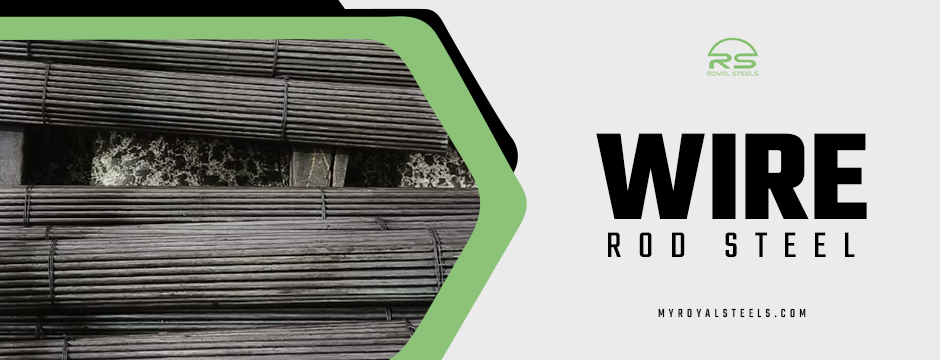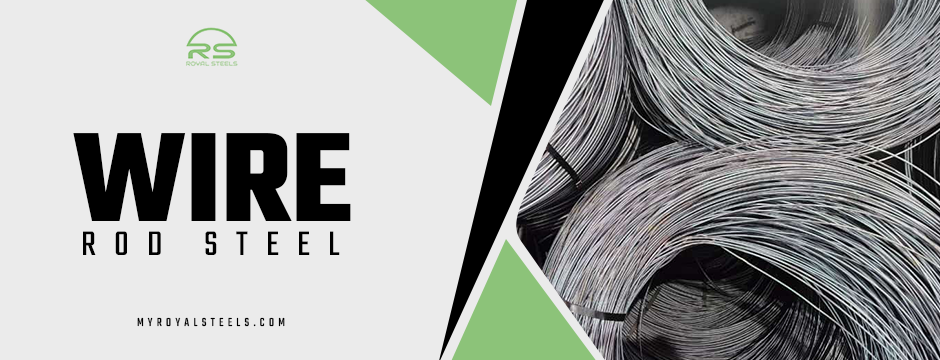Infrastructure is the backbone of any nation’s progress. Roads, bridges, railways, power plants, industrial units, and urban construction projects all play a crucial role in driving economic growth and improving the quality of life. At the heart of these developments lies a vital material—wire rod steel. While often overlooked compared to structural steel beams or concrete, wire steel is a fundamental component that supports both large-scale construction and everyday applications.
From reinforcing concrete structures to manufacturing fasteners, springs, and wires, this rod serves as the foundation for countless industries. Its strength, flexibility, and adaptability make it an irreplaceable material in modern infrastructure projects. Whether it’s used in bridges that connect cities, transmission lines that carry electricity, or railways that link regions, wire rod ensures safety, durability, and long-term reliability. This blog explores why rod steel is indispensable for infrastructure growth, examining its applications, advantages, and role in shaping a stronger future.
Key Applications of Wire Rod Steel in Infrastructure
Construction Reinforcement
The manufacturing of welded mesh and reinforcement bars, and binding wires depends heavily on wire rod steel as a primary material. The elements protect concrete structures by making them stronger, which allows buildings and bridges and roads to handle heavy weights and natural disasters.
Power Transmission and Utilities
The manufacturing of power cables and transmission lines requires wire rods from energy infrastructure. Their high durability and conductivity properties make them suitable for supporting electrical grids which distribute power to industrial facilities and residential areas.
Transportation Networks
Steel functions as the essential foundation which supports both railways and highways. Wire rod steel serves three main purposes in prestressed concrete railway sleepers and fencing wires, and safety barriers, which maintain railway operations and protect passengers.
Industrial Manufacturing
The production of nuts and bolts and screws, and springs requires wire rod steel as a fundamental material. These components are integral to machinery, vehicles, and construction tools—indirectly supporting infrastructure projects.
Urban Development
Residential fencing construction requires wire rod steel, which also serves as the base material for developing suspension cables that support contemporary building architectures.
Why Wire Rod Steel Is Indispensable for Growth?
Strength and Durability
The design of infrastructure projects requires them to function for multiple decades. Wire rod steel delivers outstanding tensile strength together with fatigue resistance, which makes it a long-lasting solution.
Flexibility and Workability
The metal shows excellent industrial flexibility through its capacity to produce fine wires and various structural forms.
Cost-Effectiveness
Wire rod steel provides outstanding performance at affordable prices when compared to other materials, which makes it the best choice for building large-scale infrastructure projects.
Sustainability
The world supports green construction development because wire rod steel requires no environmental resources for recycling.
Support for Modern Technology
Advanced steel components serve as essential requirements for smart grids and electric vehicles, and renewable energy projects. Special wires and fasteners require wire rod steel for production, which enables the operation of these technologies.
The Role of Wire Rod Steel in National Development

Infrastructure growth directly correlates with a country’s economic progress. Nations investing in transportation, power, and housing rely heavily on steel. For example:
- Highways and Metro Systems: Require reinforcement materials and safety barriers made from stainless steel wire rod.
- Renewable Energy Projects: Wind turbines, solar panel mounts, and hydroelectric plants use wire rod-based products.
- Smart Cities: Depend on durable wiring, cabling, and structural reinforcements to integrate technology with urban living.
Wire rod steel ensures that these projects are not only completed but also remain strong and safe for decades.
Future Outlook of Wire Rod Steel in Infrastructure
The expanding cities and growing populations, together with industrial growth, will create a strong demand for wire rod steel. Emerging economies invest in sustainable modern infrastructure development, while developed nations focus on modernising their current infrastructure.
The world depends on international programs which promote green building methods and circular economy systems to support materials that have long-lasting durability and recycling potential, together with environmental safety, and wire rod steel fulfils these requirements. The system maintains its importance, so it will become even more important in the years to come.
Bottom Line
Wire rod steel may not always be in the spotlight, but it is the invisible force behind bridges that stand tall, roads that endure, railways that connect nations, and power grids that light up cities. Its versatility, strength, and adaptability make it a cornerstone of infrastructure development. As governments and private sectors invest heavily in urbanisation, smart technologies, and sustainable energy, the importance of reliable steel products will continue to grow.
Choosing high-quality wire rod steel ensures not just the completion of projects, but also their safety, durability, and long-term success. For industries, builders, and developers seeking premium-grade wire rod steel, Royal Steels offers trusted solutions designed to meet the highest standards. With our expertise and commitment to excellence, we provide the essential materials needed to drive infrastructure growth and build a stronger future.
Frequently Asked Questions
-
Wire rod steel is used to make reinforcement materials like welded mesh, binding wires, and rebar, which strengthen concrete structures in roads, bridges, and buildings.
-
It provides durability, flexibility, and cost-effectiveness, making it a key material for transportation networks, power transmission, and urban development.
-
Wire rod steel is produced by hot rolling steel billets into coils with diameters typically ranging from 5.5 mm to 14 mm, ensuring ductility and strength.
-
Yes, wire rod steel is recyclable, making it an eco-friendly choice for modern infrastructure projects and supporting sustainable construction practices.
-
Apart from construction, wire rod steel is used in power utilities, automotive manufacturing, machinery, fasteners, springs, and fencing for urban development.

